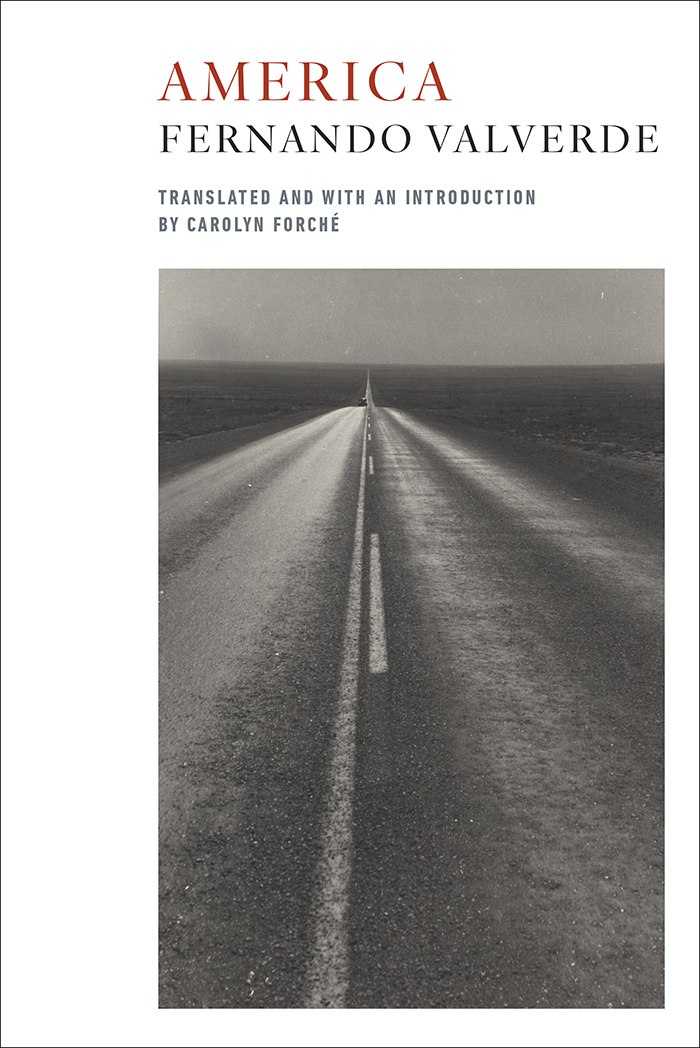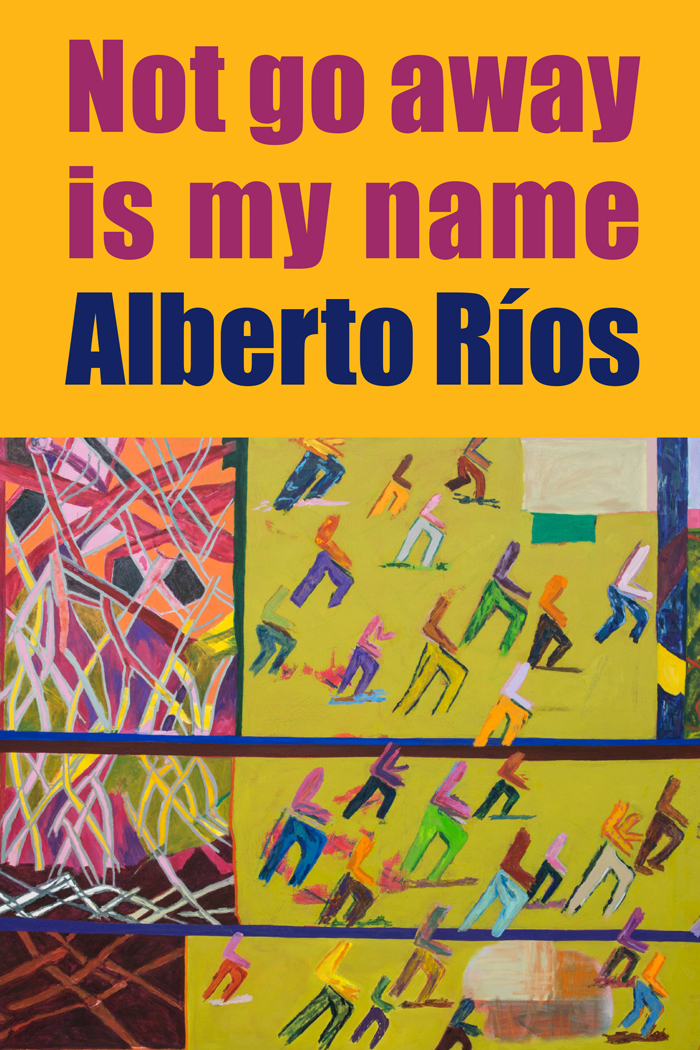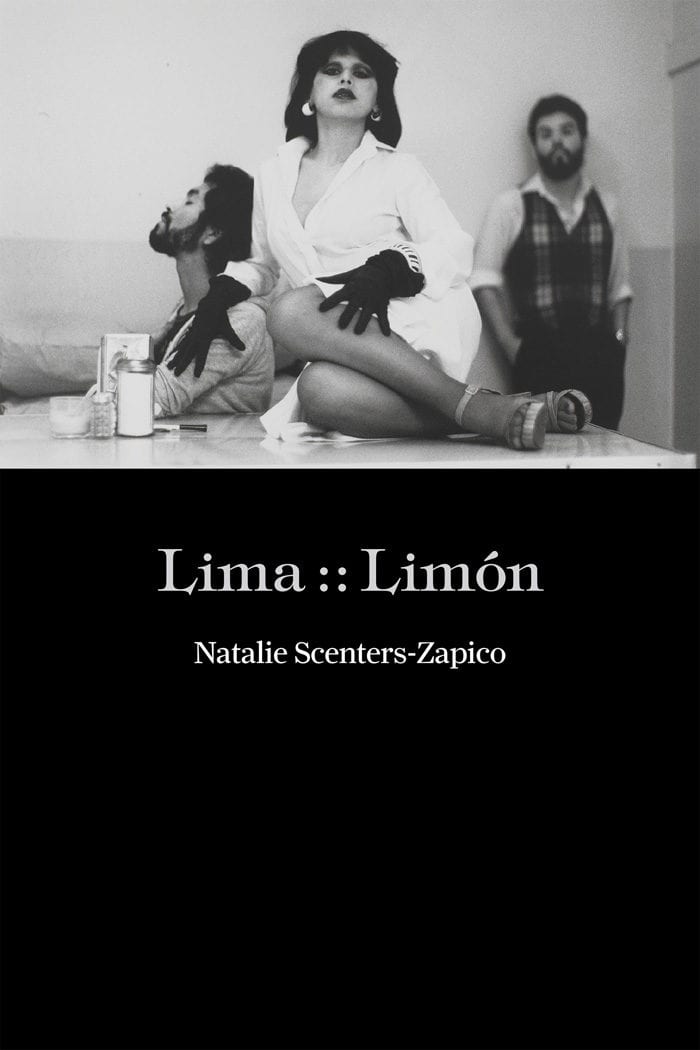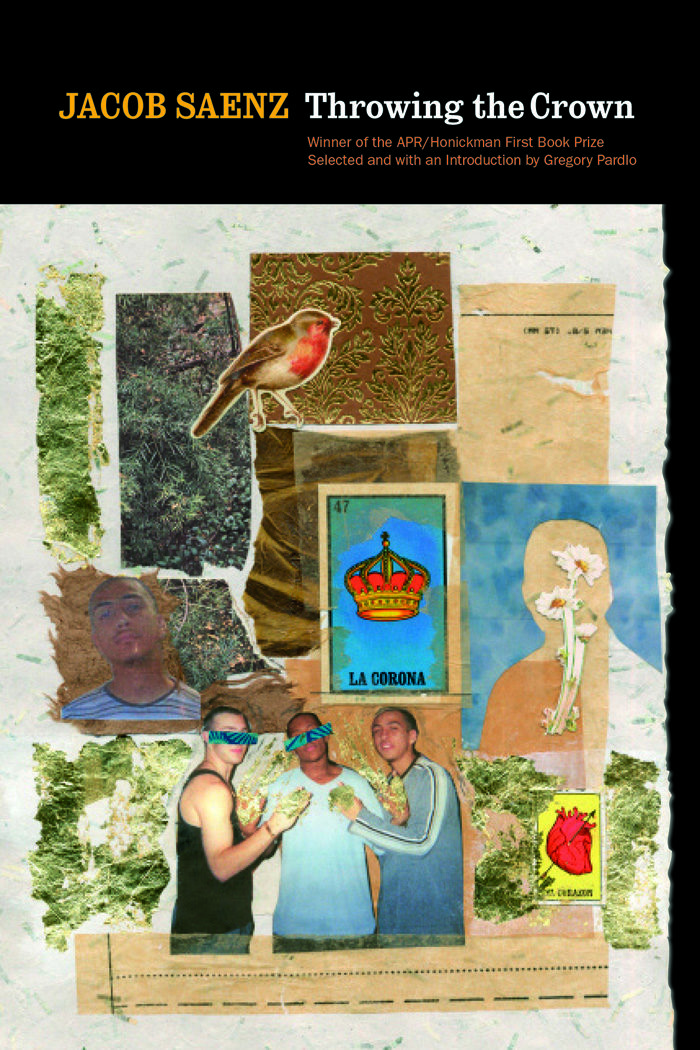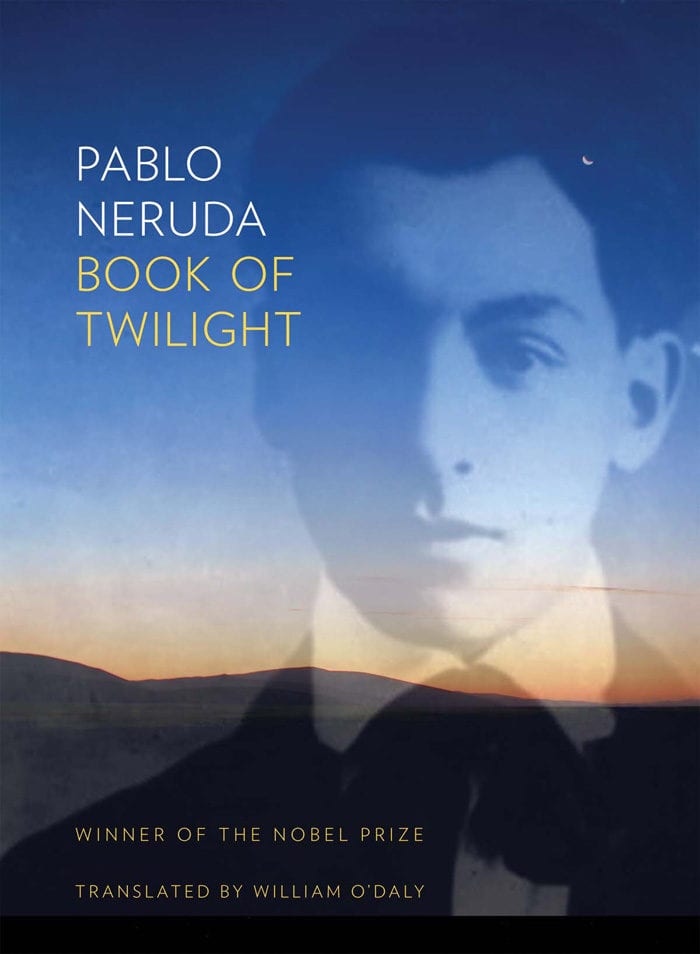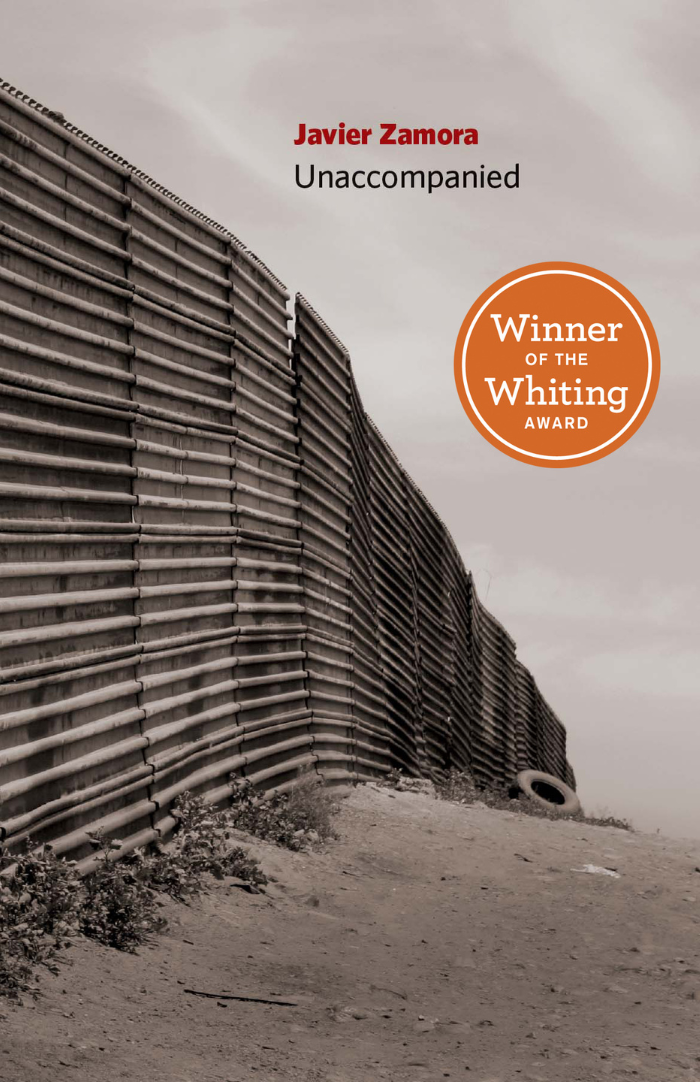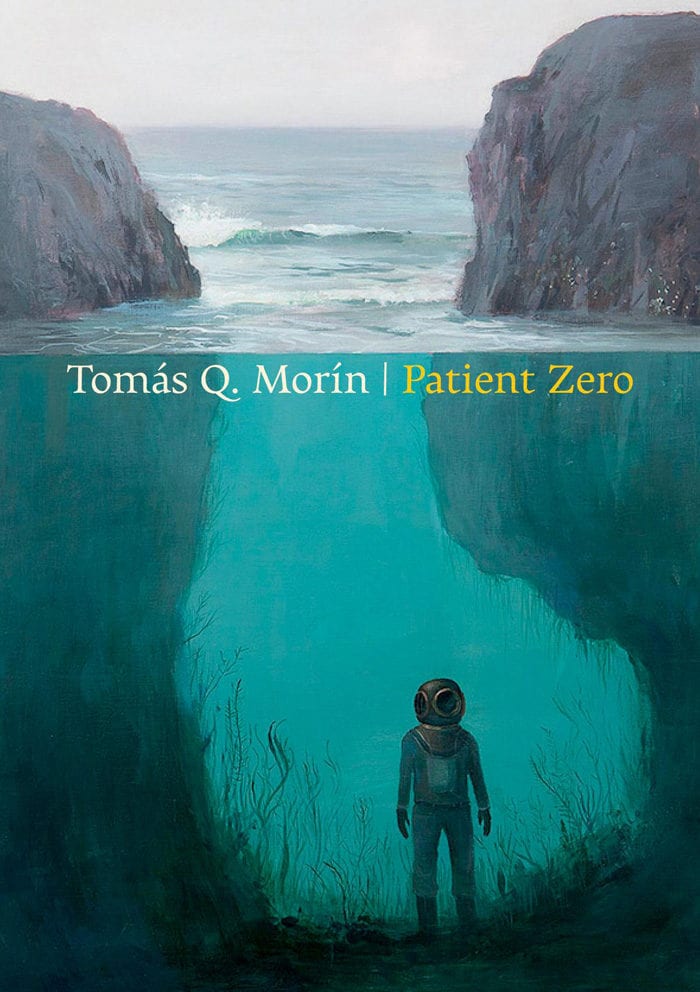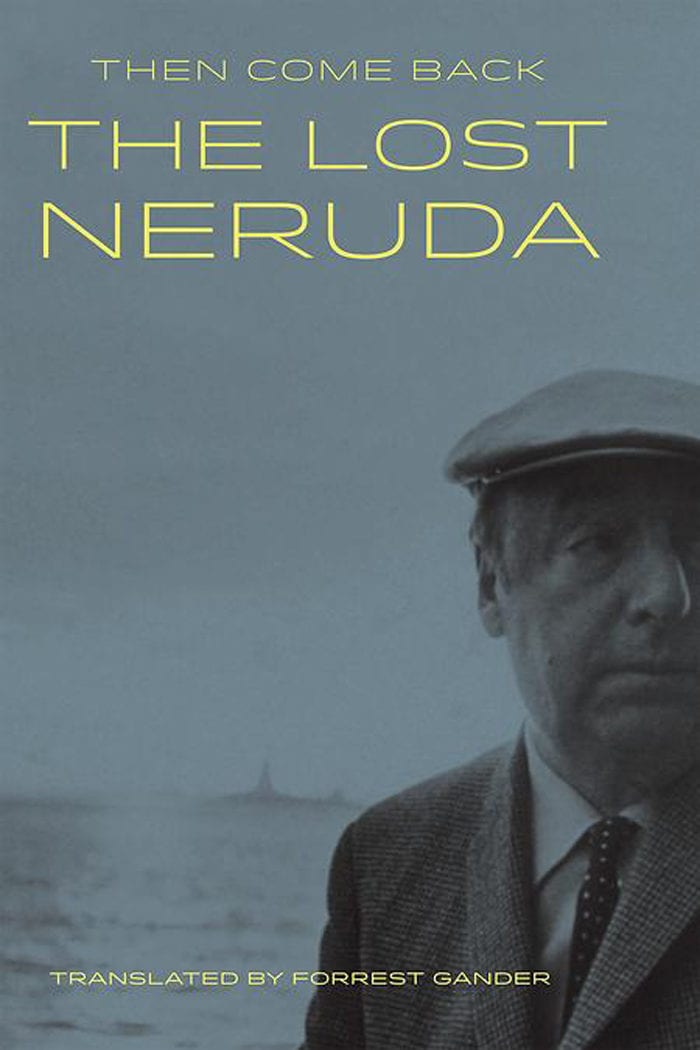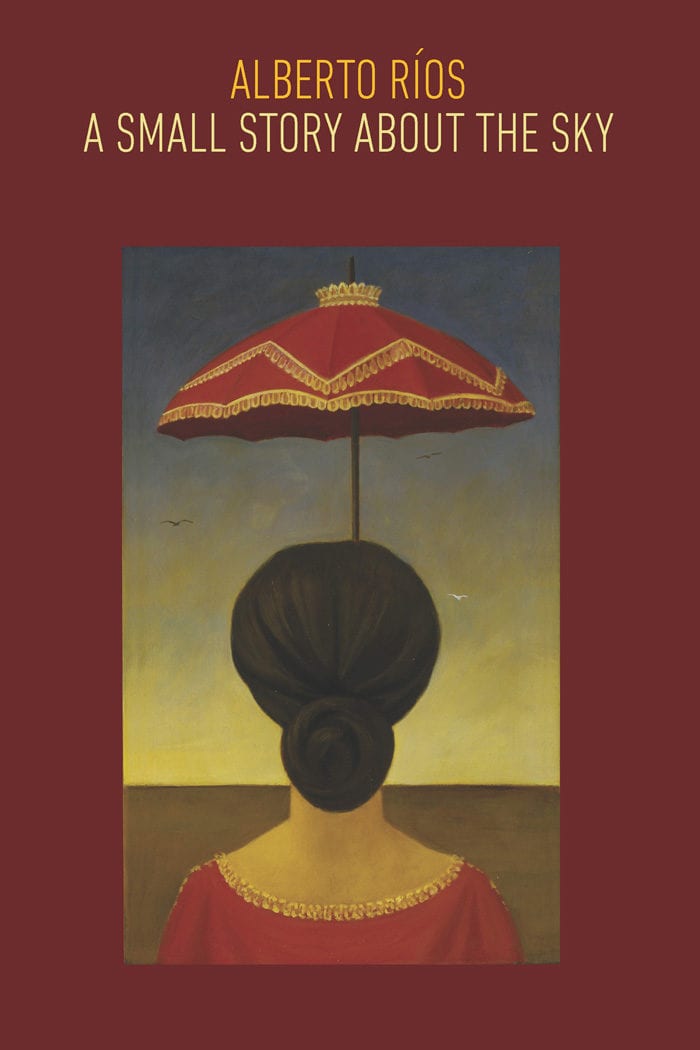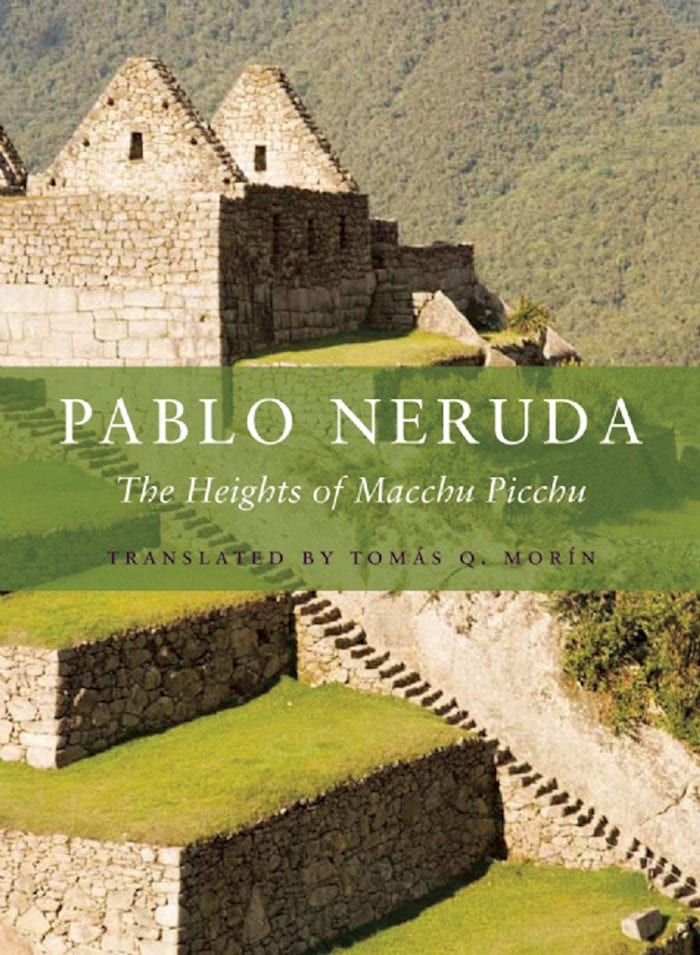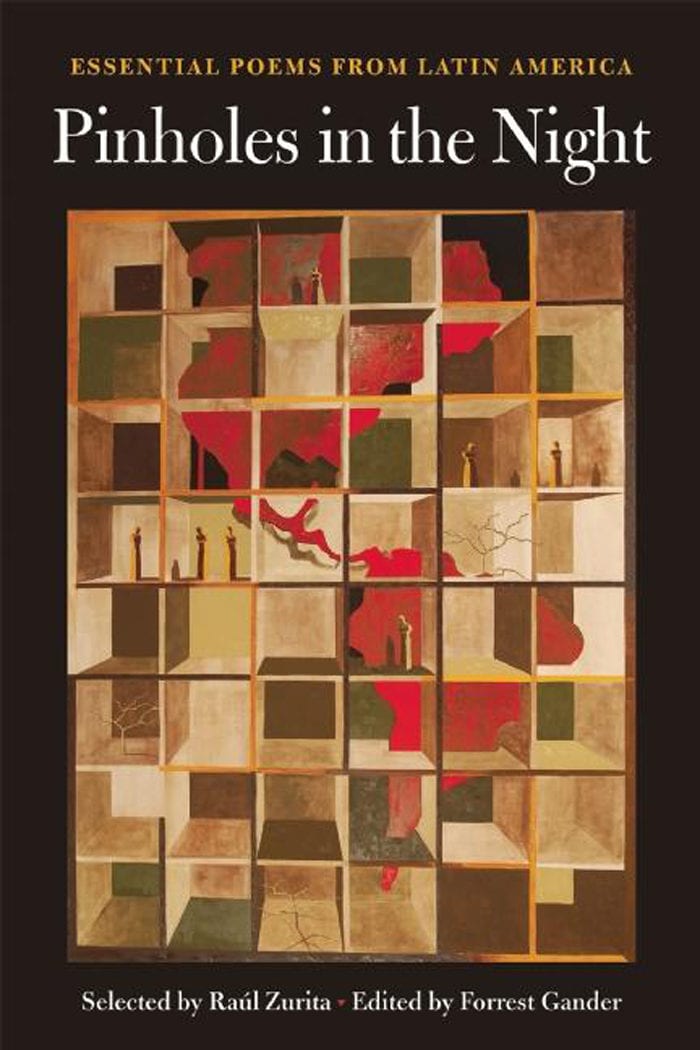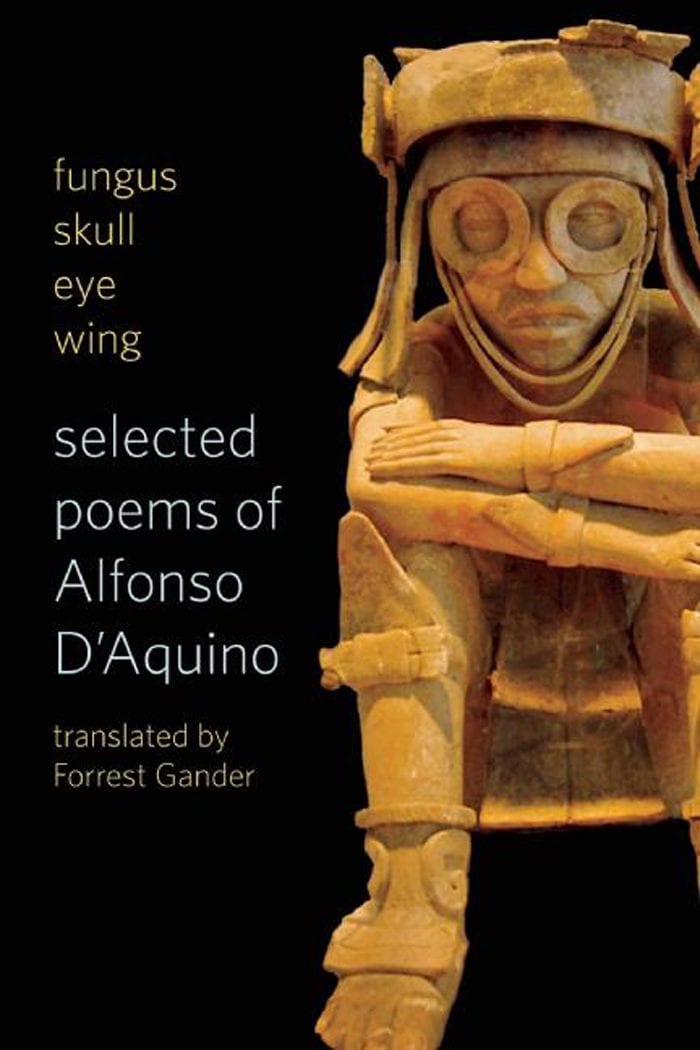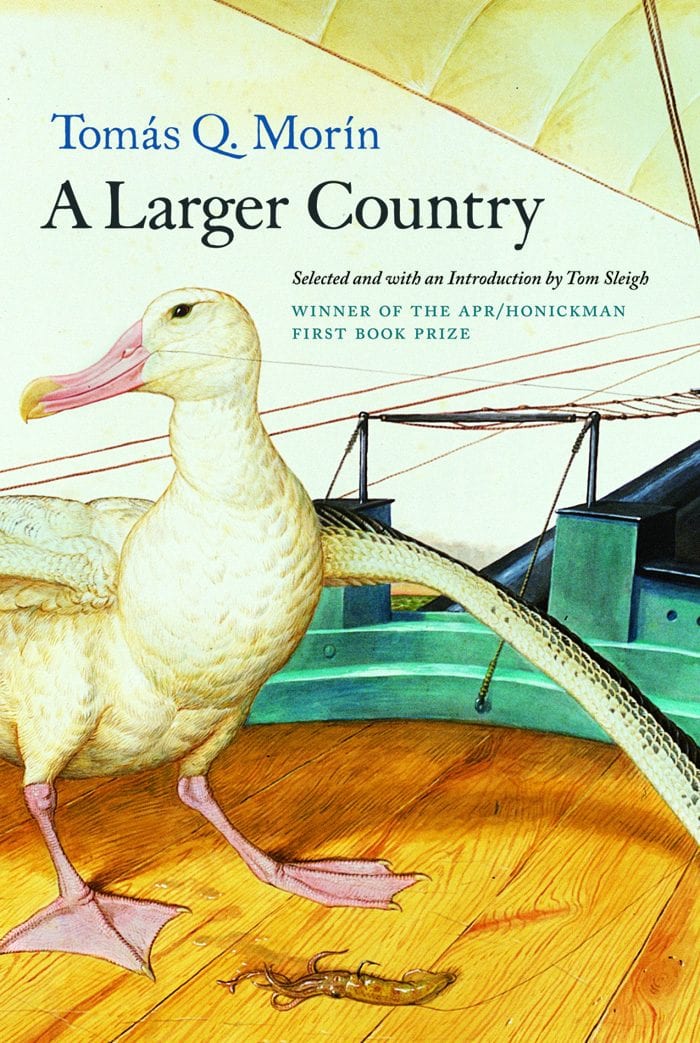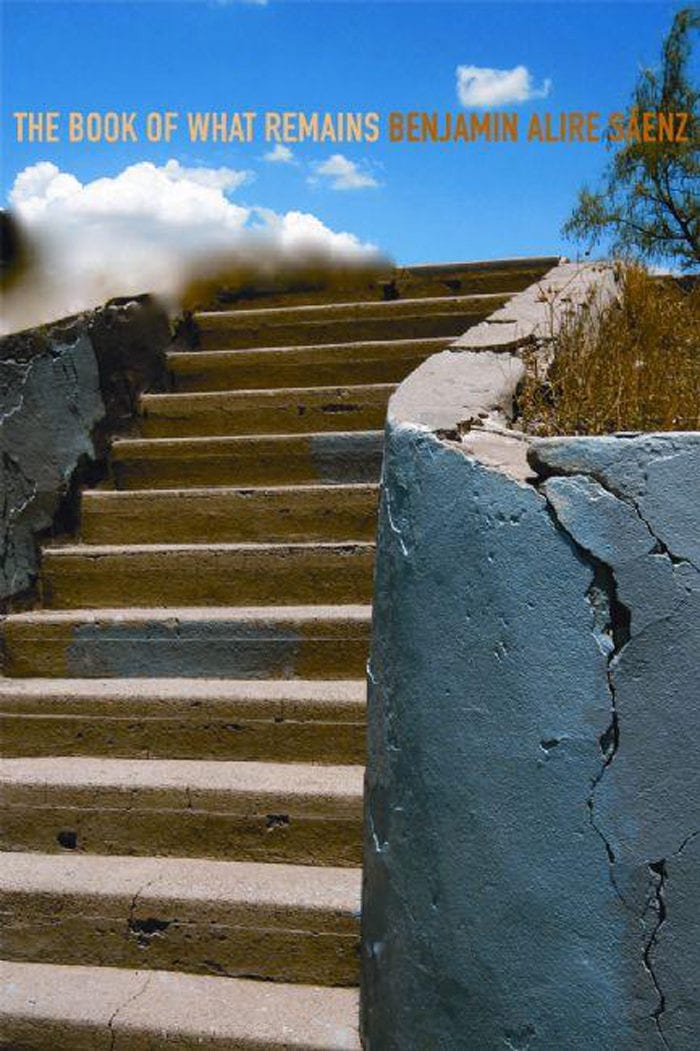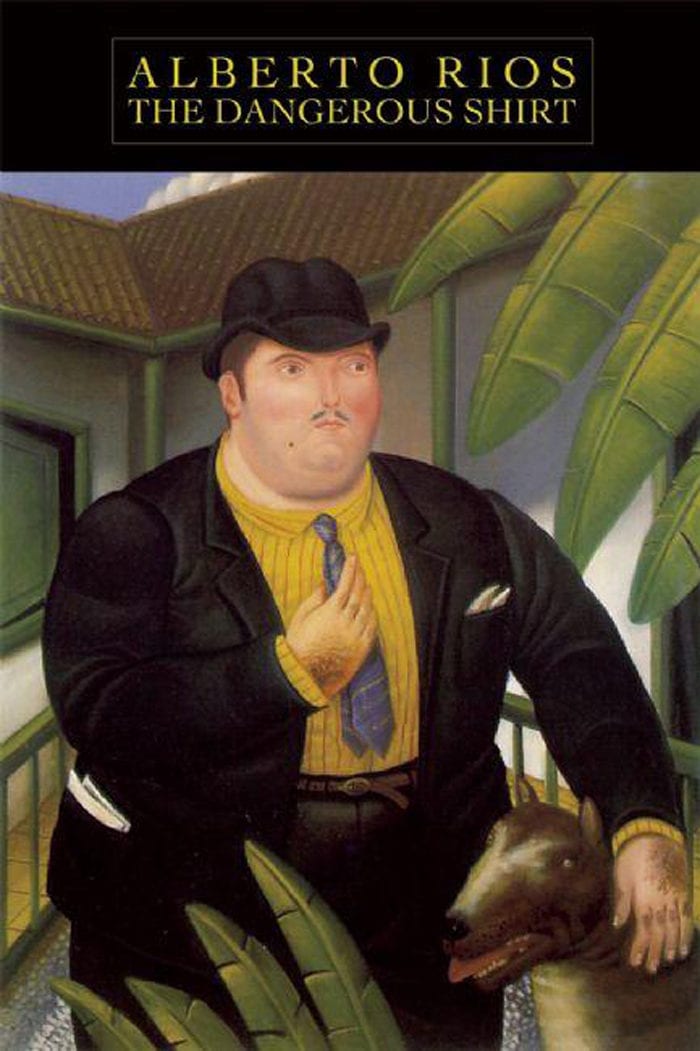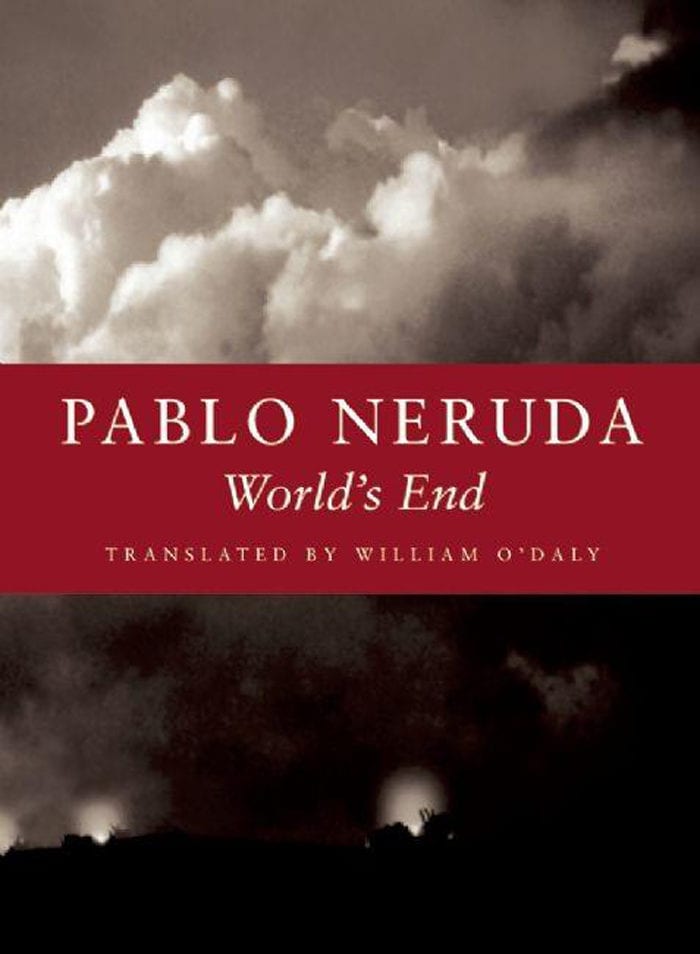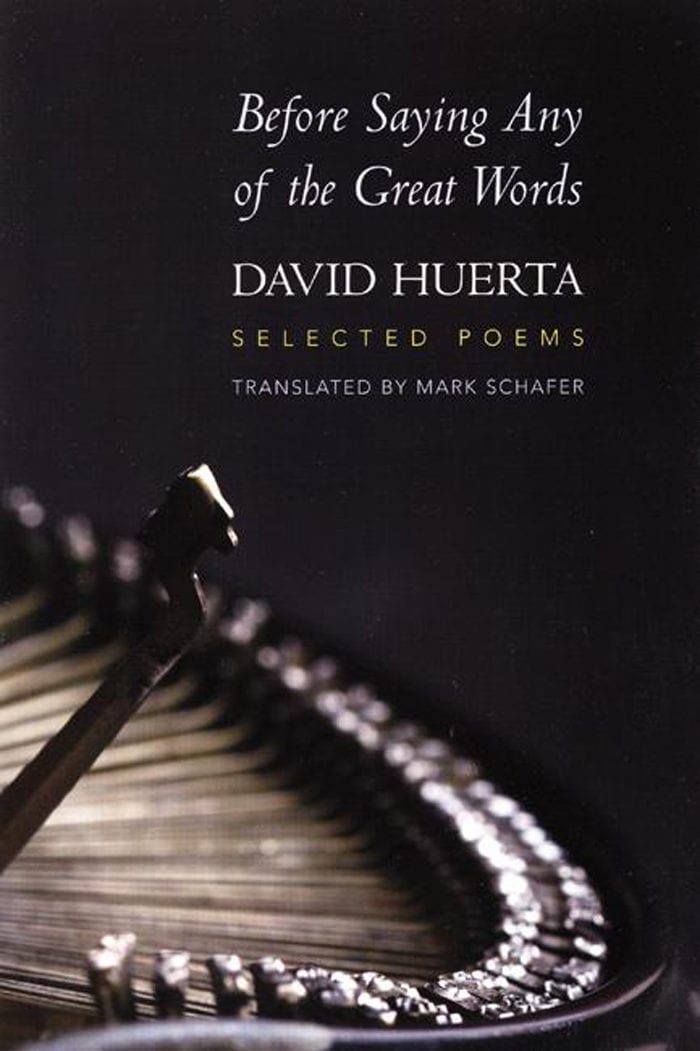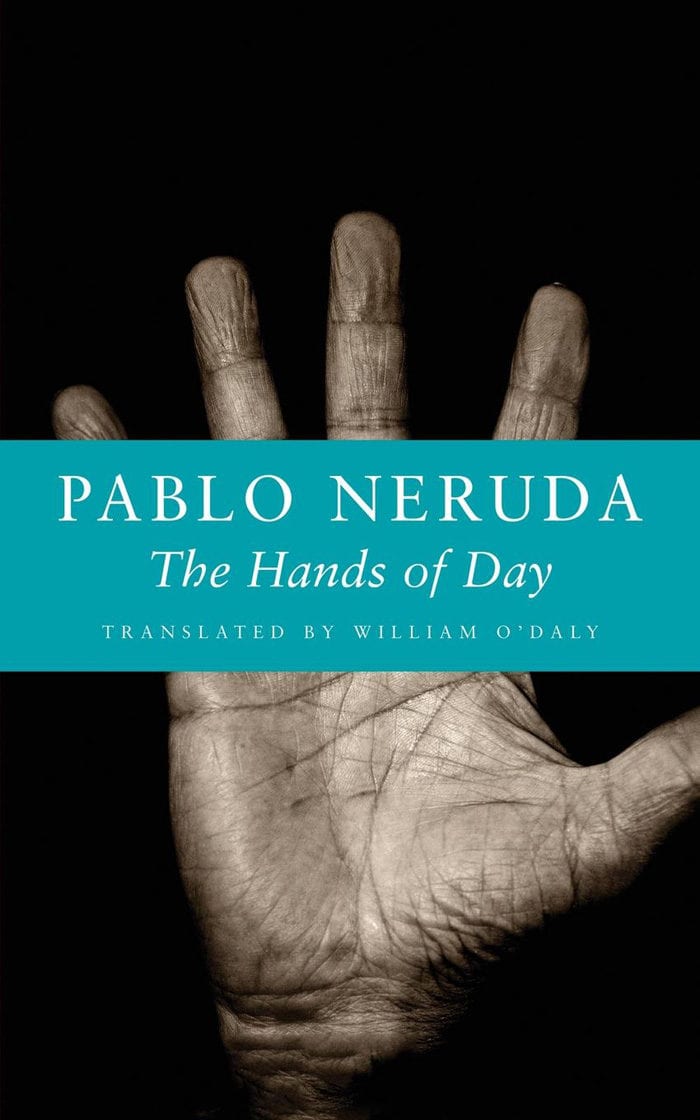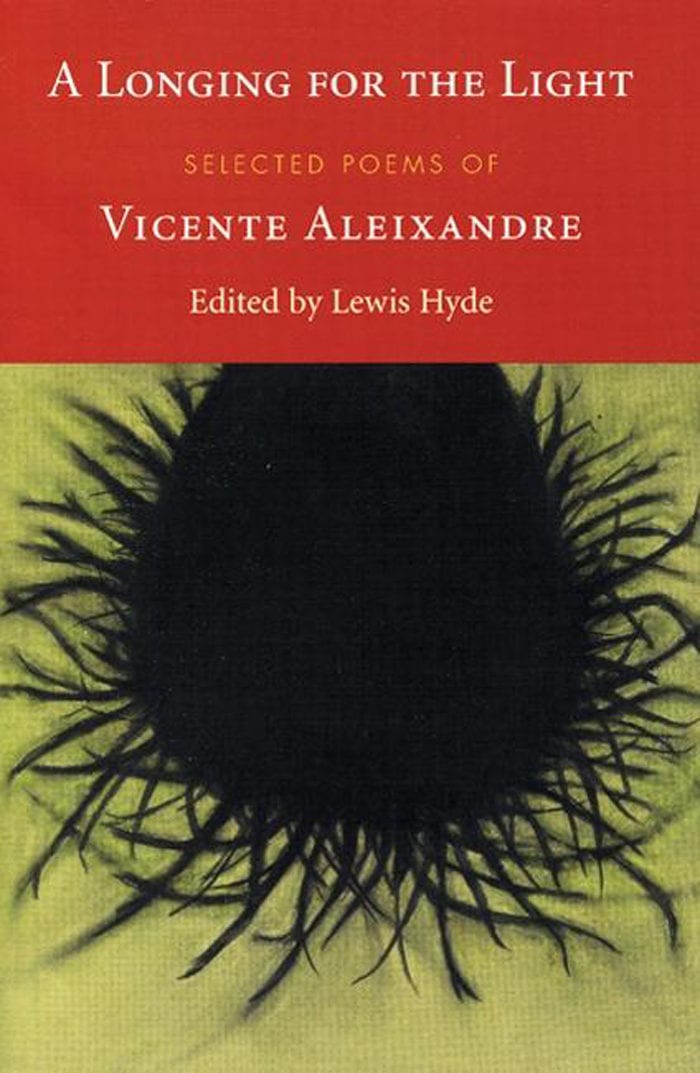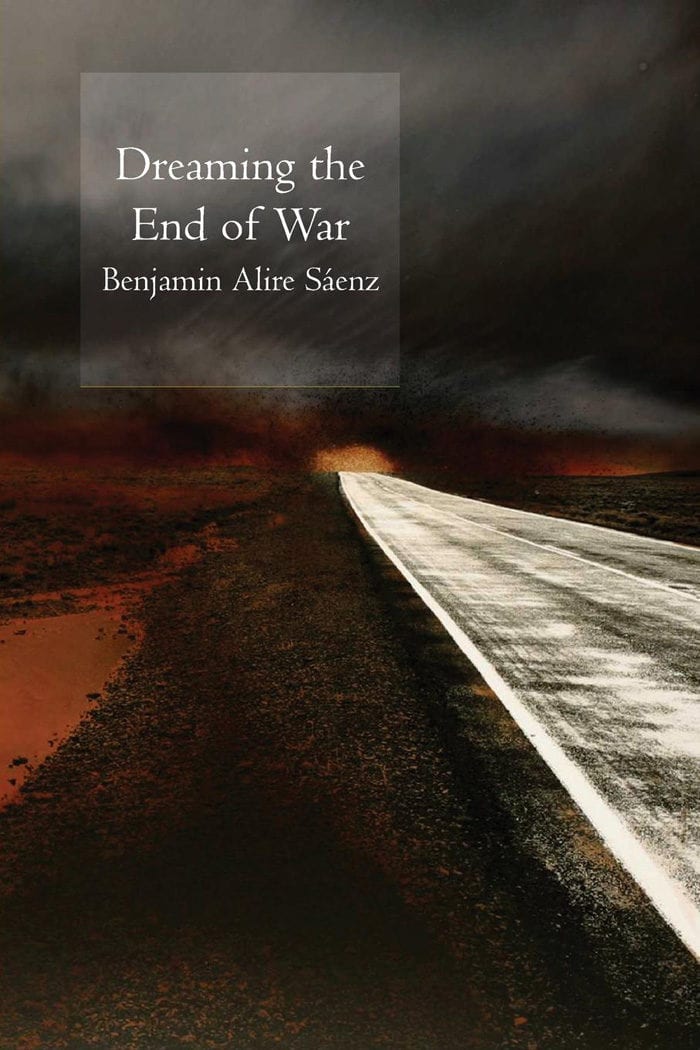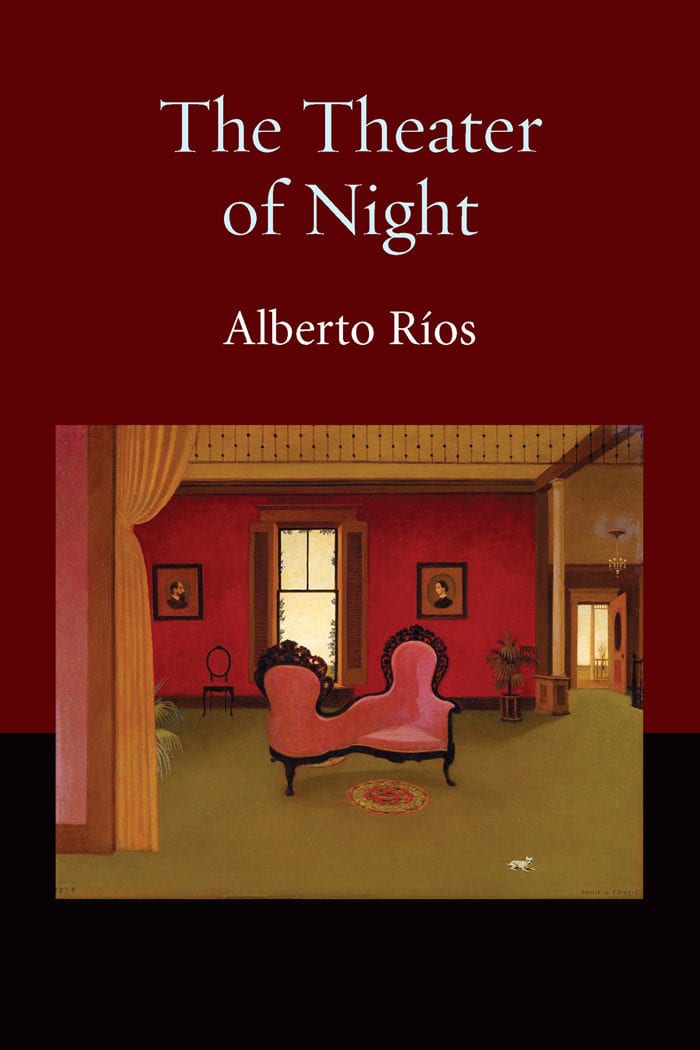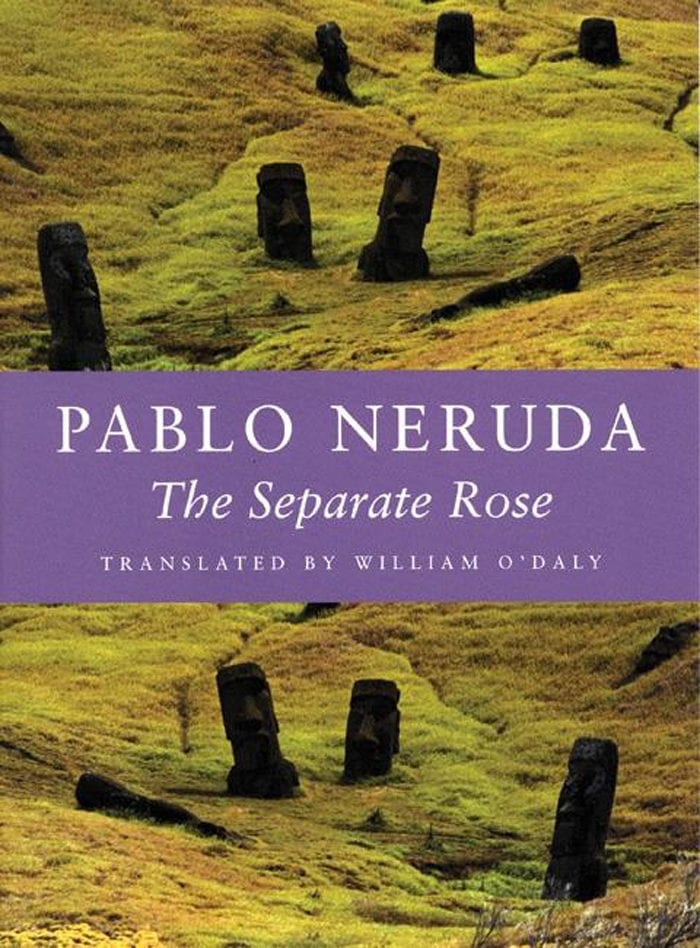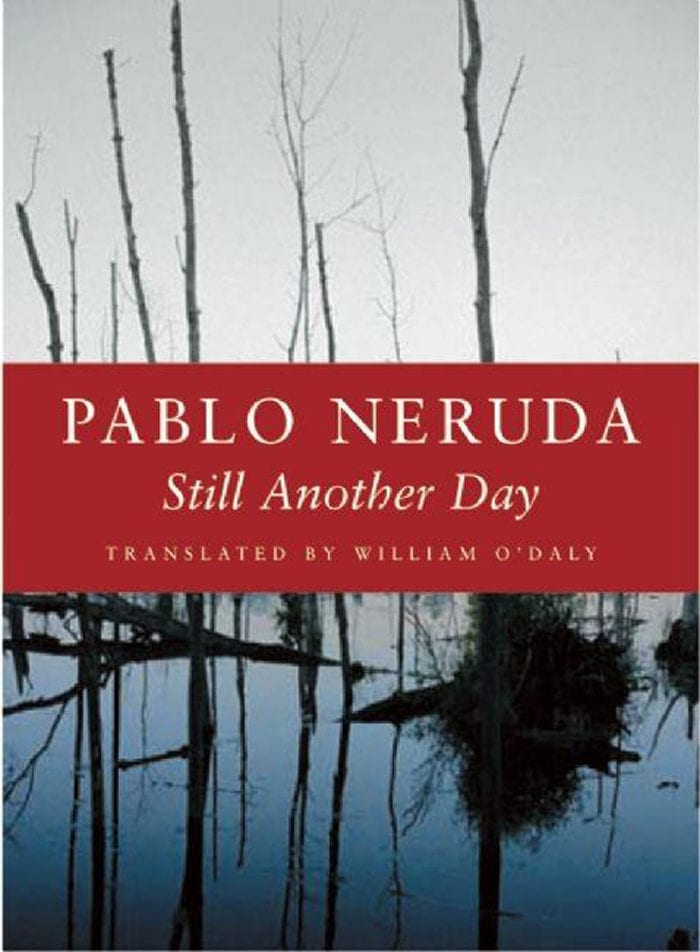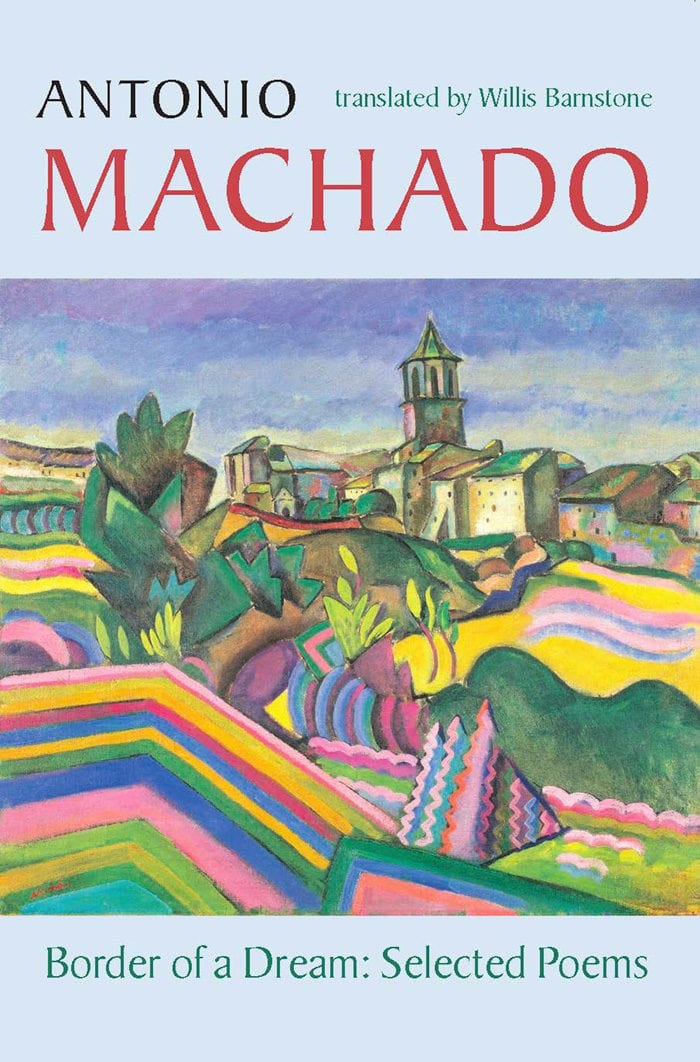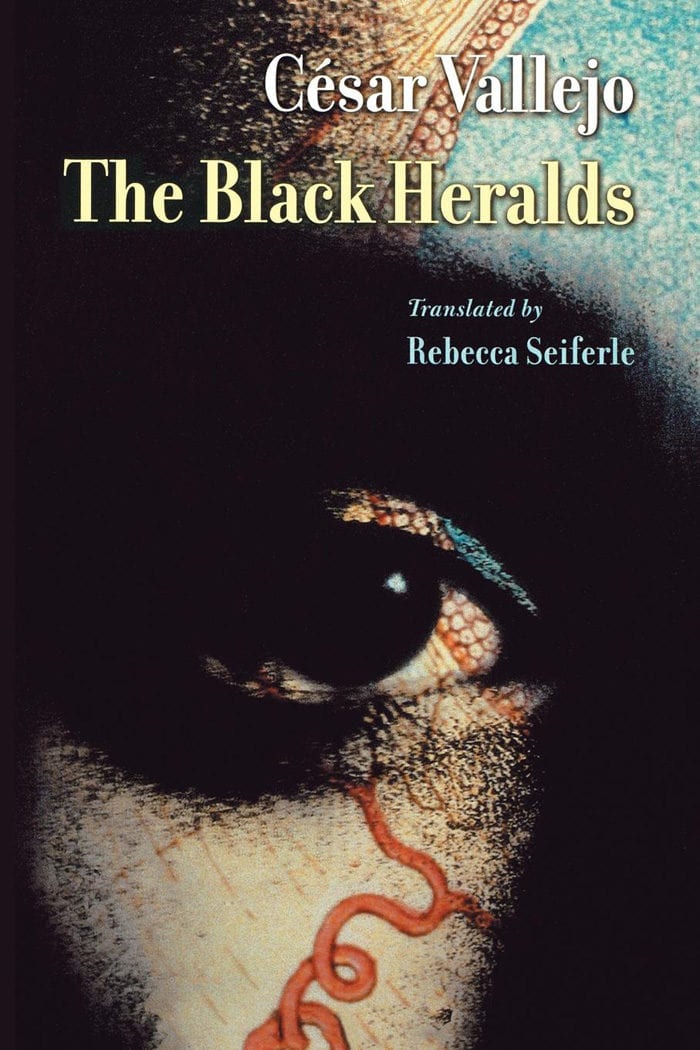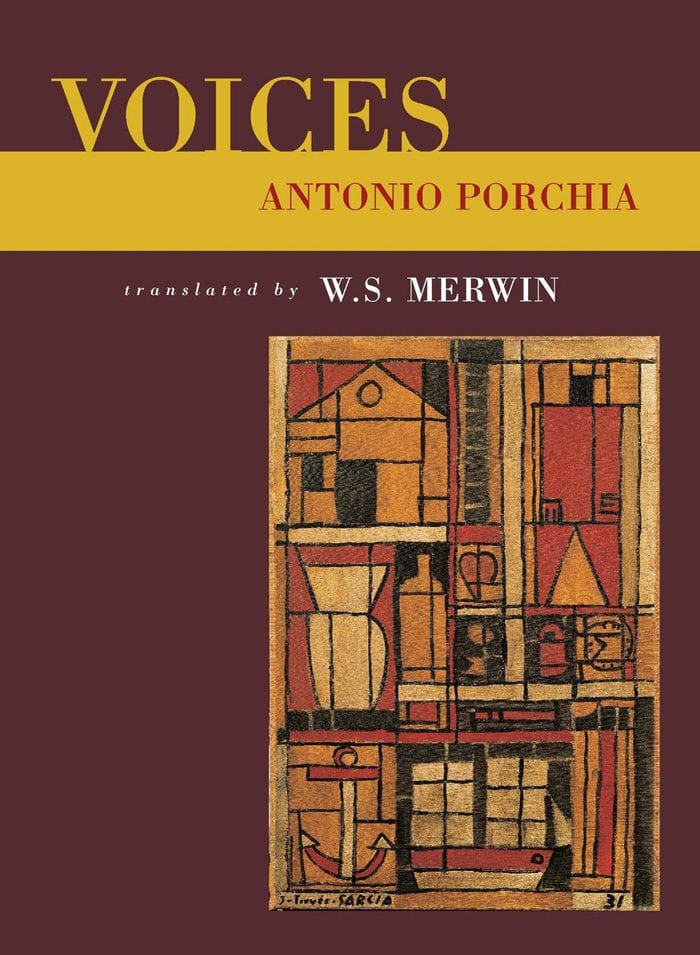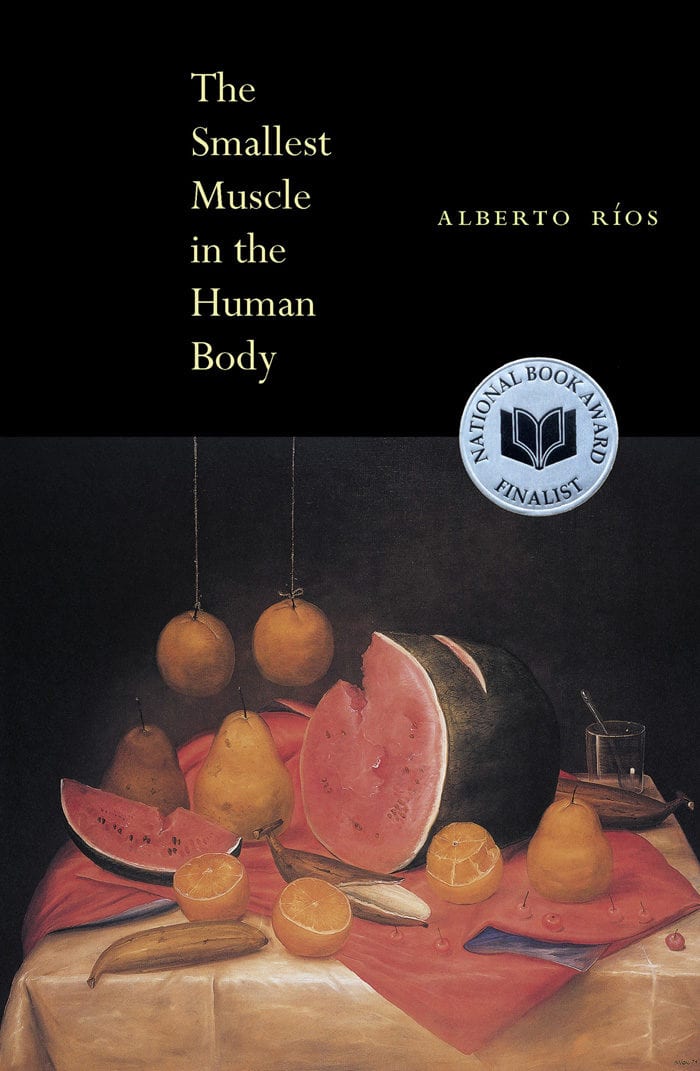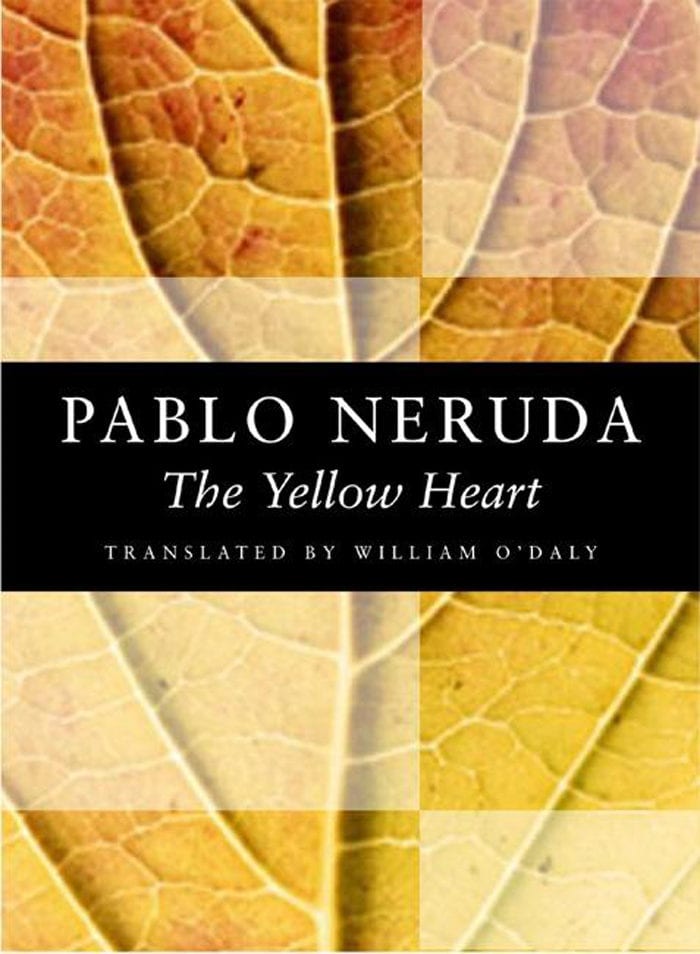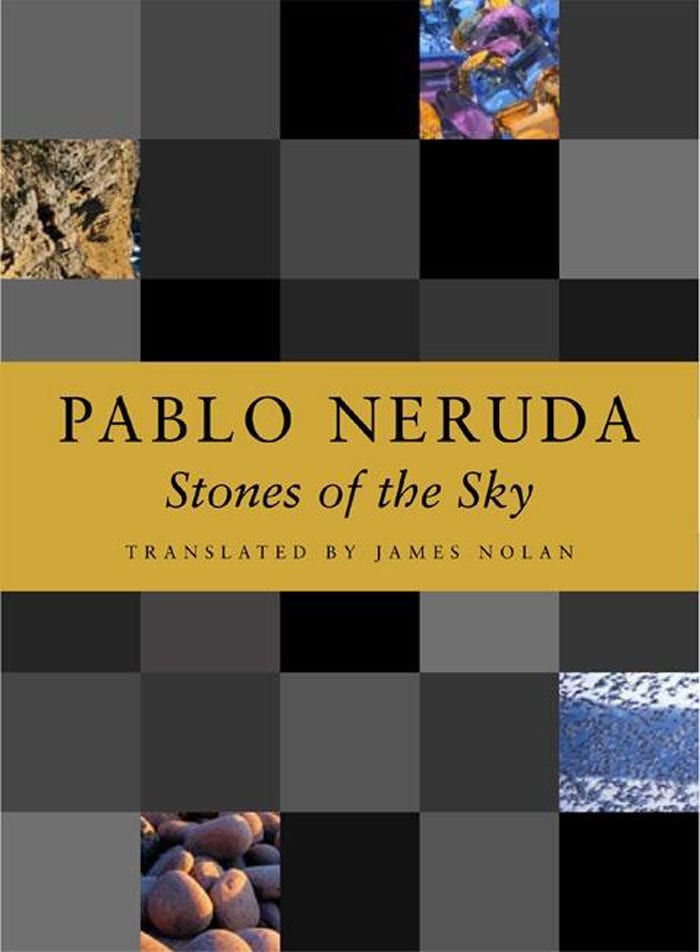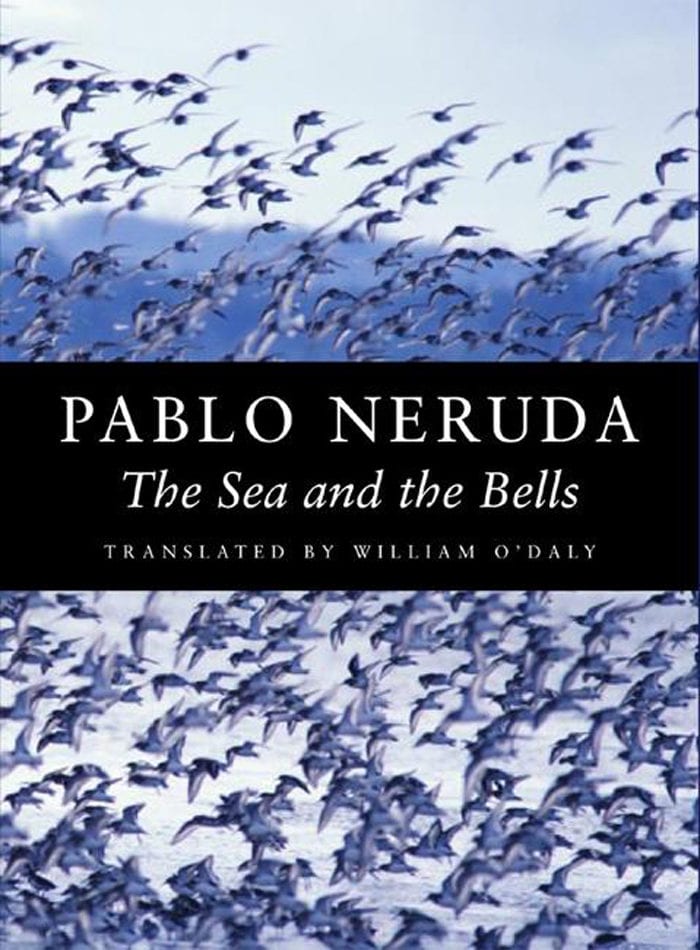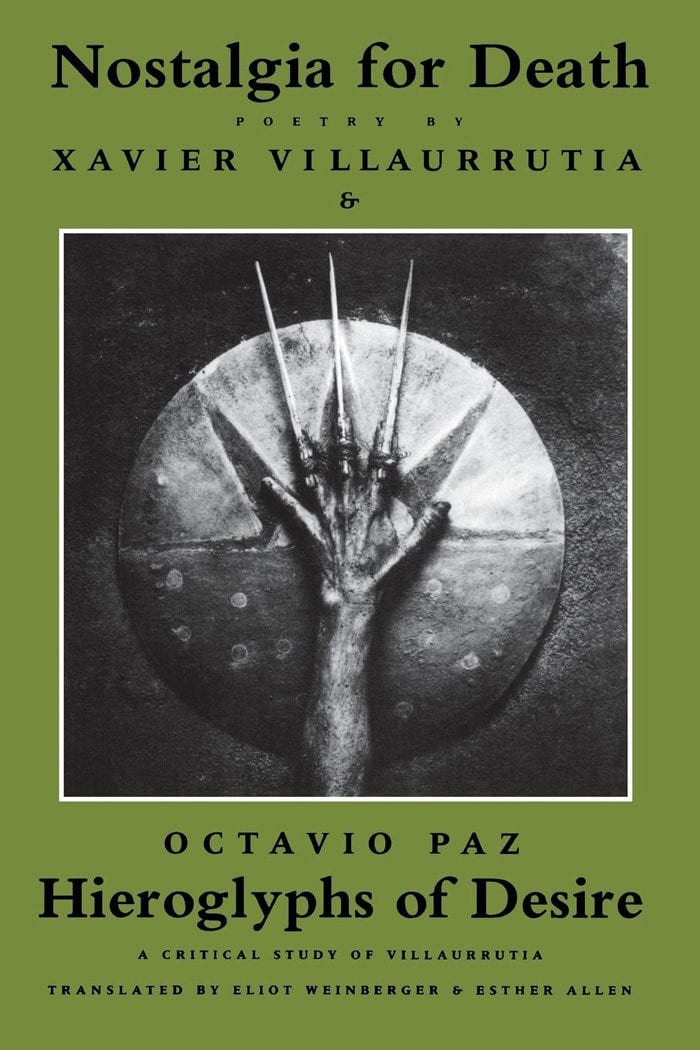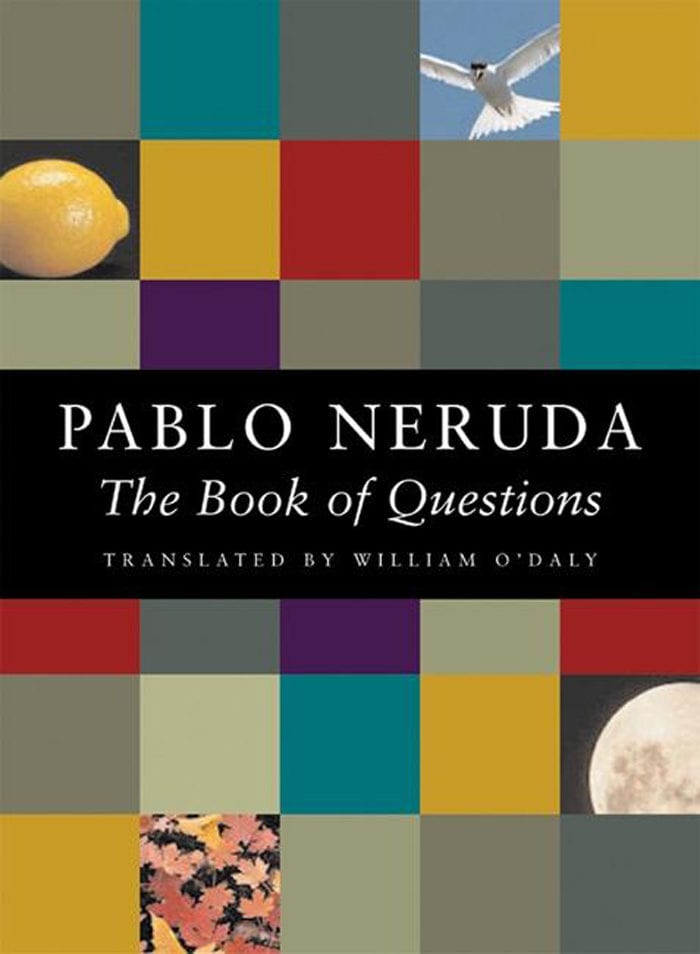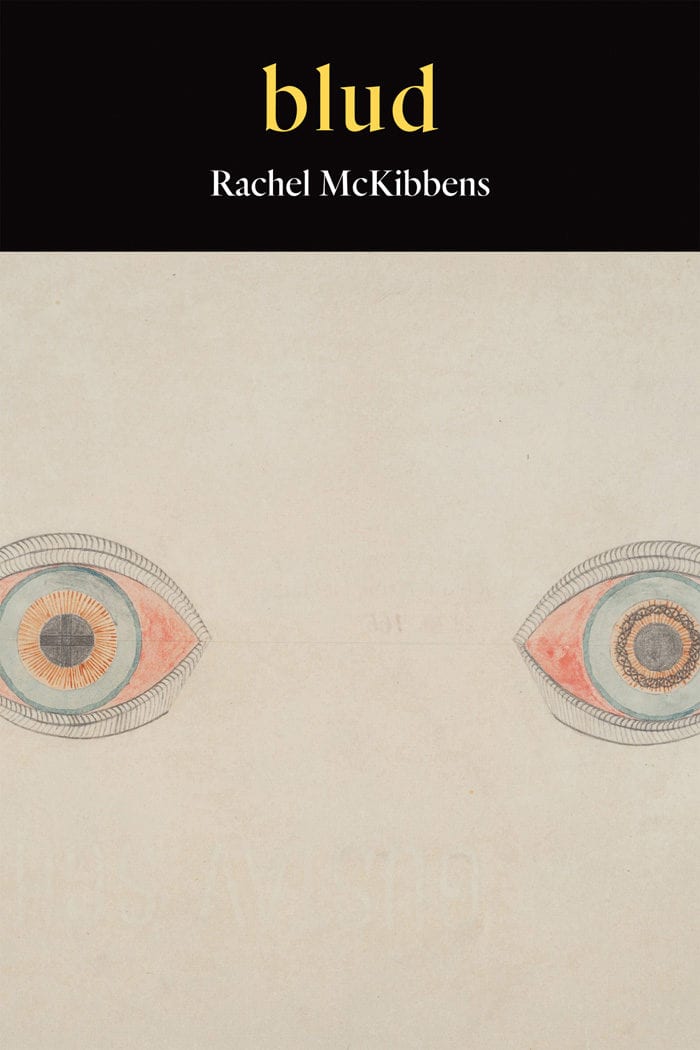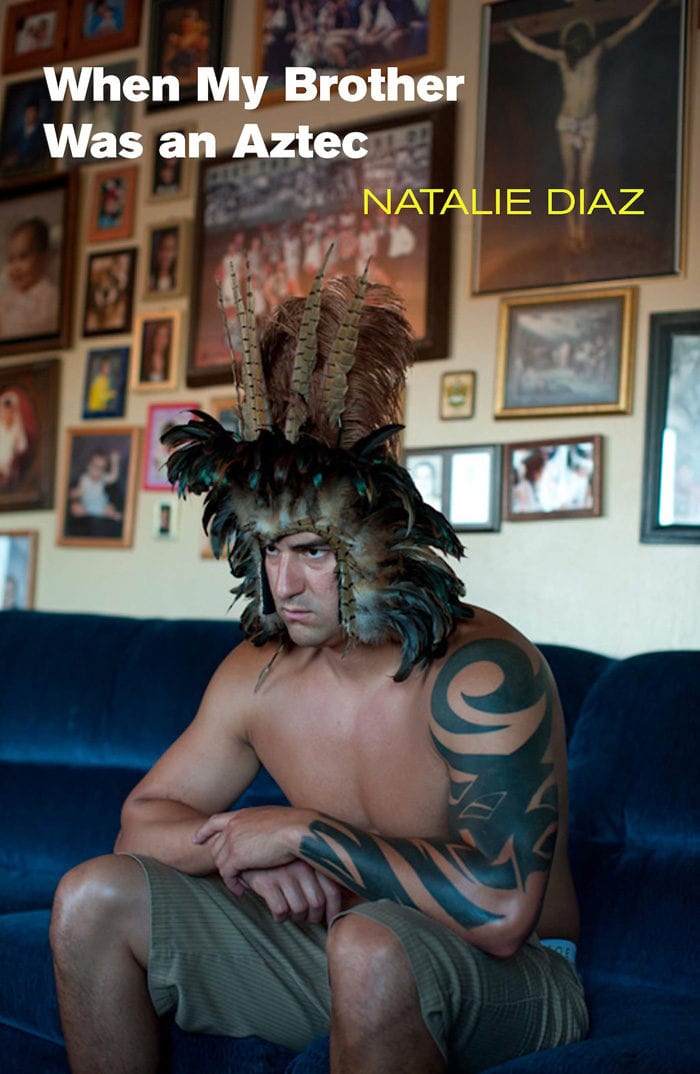In Fernando Valverde’s América, “sorrow is ancient.” Mournfully lyrical, politically sharp, with a sweeping view of American roots, dysfunctions, and ideals―as if from above, and yet also from within―this is a book that deconstructs the legacy of empire. From the Mississippi River to Fulton Avenue, from slavery to “lone wolf” shooters, Valverde grieves but does not wince away from all that is lost to greed and a culture of violence, painting an urgent portrait of “the thirst of America / a smile satisfied to death.”
Resistance and persistence collide in Alberto Rios’s sixteenth book, Not Go Away Is My Name, a book about past and present, changing and unchanging, letting go and holding on. The borderline between Mexico and the U.S. looms large, and Ríos sheds light on and challenges our sensory experiences of everyday objects.
Natalie Scenters-Zapico’s second poetry collection is a lyrical exploration of the intersection between gender roles and desire on the US-México border. Set within the liminal geography of the poet’s hometowns of Ciudad Juárez, Chihuahua, and El Paso, Texas, Lima :: Limón fiercely questions machismo and marianismo, cultural norms that give way to gender violence and an apathetic eye turned to femicide.
Winner of the prestigious Honickman First Book Prize from the American Poetry Review, selected by Pulitzer Prize winner Gregory Pardlo, Throwing the Crown describes a boyhood on the edge. Set in a Chicago neighborhood dominated by gang life, Saenz sets the sweetness and vulnerability of youth against the cold reality of a gun pressed against a forehead.
n Book of Twilight we meet a poet on the verge: Pablo Neruda—young, impassioned, vulnerable—poised to become one of the most beloved writers of our time. The precocious poet, then a teenager named Neftalí Ricardo Reyes Basoalto, reportedly sold his father’s pocket watch to print the first copies of his debut book of poetry, one year before Twenty Love Poems and a Song of Despair placed Neruda on the world’s stage.
Zamora’s debut cradles within it a family’s risky song of longing and love for a country torn apart by war and gang violence. These poems recall and are rooted in the experiences of a nine-year-old boy traveling alone for thousands of miles and confronting everywhere the realities of borderland politics, racism, and economic injustice.
Tomás Q. Morín’s Patient Zero is full of life and its undeniable hungers. Claws, fins, and feathers, hands, mouths, and skin betoken animals with appetites, our world—in which a man in a crowded market becomes a tree of butterflies, a mountain gives a feline yawn, grocery bags contain “milk for bones—salt for blood.”
In A Small Story about the Sky, Alberto Ríos, Arizona’s first Poet Laureate, casts an intense desert light on the rich stories unfolding along the Mexico-United States border. In poems peppered with Latin American culture and touches of magic realism, the objects of ordinary life—a shower stall, spilled birdseed, winter lemons—lead to explorations of mortality and of the many possibilities of how lives may yet be lived.
The Heights of Macchu Picchu has been called Pablo Neruda’s greatest contribution to poetry—a search for the “indestructible, imperishable life” in all things. Inspired by his journey to the ancient ruins, Neruda calls on the lost Incan civilization to “rise up and be born,” and also to empower the people of his time.
This intensely focused bilingual anthology pinpoints the heart of Latin American self-identification. In selecting these fifteen essential poems, Chilean poet Raúl Zurita was guided by the question, “What poem, had it not been written, would have rendered the author and Latin American poetry something else?”
fungus skull eye wing is a book of shifting subjectivity and liquid perspective, of surrealist tradition and Butoh-like gestures. The text flirts with the margins of the “rational,” perception, and the subjective mind. The speaker morphs into what he observes; speech comes alive while a plant becomes speech.
Tomás Q. Morín’s first book of poetry is rich with lush imagery and lively storytelling. These poems are bold and brightly imagined. Winner of the APR/Honickman First Book Prize, A Larger Country was selected by acclaimed poet Thomas Sleigh, who selected and enthusiastically wrote the introduction, praising this “distinctive and darkly humorous debut collection.”
Poet, novelist, and popular young adult author Benjamin Alire Sáenz writes to the core truth of life’s ever-shifting memories. In poems set along the border between the United States and Mexico, Sáenz presents the contrast between the desert’s austere beauty and the brutality of border politics, mirroring humanity’s capacity for both generosity and cruelty.
Alberto Ríos’s sixth full-length book of poems explores the magic located in everyday reality. His poems create an improbably true space where human bodies suddenly fall through floorboards, the prickly feeling of limbs “fallen asleep” becomes stars buzzing under the skin, and ironed shirts hanging in a closet take on a foreboding sense of danger.
This first complete English translation of Pablo Neruda’s Fin de mundo (World’s End) appears in this bilingual edition by noted Neruda translator William O’Daly. In this book-length poem, Neruda confronts a grim disillusionment growing inside him, as well as the fear that came to haunt the century that promised to end all wars.
This volume selects poems from across Huerta’s career and includes excerpts from the first-ever English translation of his monumental book-length poem, “Incurable,” which one critic called “a masterpiece of poetry in Spanish in the twentieth century.” Huerta has been a central figure in two of the most influential poetic movements in late-twentieth-century Latin America—the neobaroque movement and that of postmodern language poetry.
Pablo Neruda is one of the world’s great poets, and Copper Canyon Press has long been dedicated to publishing translations of his work in bilingual editions. The Hands of Day—at long last translated into English in its entirety—pronounces Neruda’s desire to take part in the great human making of the day.
This gripping suite of twelve dreams, infused with the conflict along the border of Mexico and the United States, traces humanity’s addiction to violence and killing–from boys stepping on ants to men shooting animals, men shooting women, men shooting enemies. The dreams begin in a desert landscape where poverty and wealth grate against each other and the ever-present war becomes “as invisible as the desert sands we trample on.”
Released on the heels of his National Book Award nomination for poetry, Alberto Ríos’s The Theater of Night is filled with magic, marvel, and emotional truth. Set within a community along the border between the United States and Mexico, Ríos’s poems trace the lives and loves of an elderly couple, Clemente and Ventura, through their childhoods, courtship, and into marriage, maturity, old age, and death.
This complete English translation of Pablo Neruda’s La rosa separada (The Separate Rose) appears in a bilingual edition by noted Neruda translator William O’Daly. This is the first English translation of this poem sequence which grew out of a trip the Nobel Laureate took to Easter Island in 1971, two years before his death.
César Vallejo, one of the great Spanish-language poets of the twentieth century, merged radical politics, Latin American languages and indigenous consciousness to create a truly New World poetry. He wrote five books of verse but published only two collections during his lifetime: The Black Heralds (1919) and Trilce (1922).
Voices is a collection of poetic aphorisms written over several decades by Antonio Porchia and translated by W.S. Merwin. Spontaneous, succinct and wise, these aphorisms have the spiritual character of the world’s great religions—especially Buddhist and Taoist epigrams—and the subtle attention to language of our best literature.
In the introduction to this bilingual volume, the translator reminds us: “Neruda spent the last forty years of his life making himself dangerous with his poetry… He came to see poetry as a moral act, with personal and communal responsibilities.” But here, Neruda is at his playful and irreverent best.
Facing the possibility of death from cancer, Neruda wrote some of his most direct and passionate lines of poetry in Winter Garden, and this translation—the first time these poems appeared in English—was cited by Bloomsbury Review as one of the “most valuable Neruda books we have today.” In this lyrical suite, the poet meditates on death, embraces solitude, and returns to nature as a source of regeneration.
A complete English translation of Pablo Neruda’s El mar y las campanas (The Sea and the Bells) appears in a bilingual edition by noted Neruda translator William O’Daly. Sea salt, foam, ocean waves, the sound of bells carrying over the water, his love for his wife Matilde, the migratory birds and winter rain of southern Chile, the birth in gunfire of his country, the destiny of the Chilean people—all of these passions helped guide Neruda’s “flight of spirit” as he composed The Sea and the Bells, pulling “one dream out of another.”
This complete translation of Pablo Neruda’s El libro de las preguntas (The Book of Questions) features Neruda’s original Spanish-language poems alongside William O’Daly’s English translations. Pablo Neruda is one of the world’s most beloved poets, and The Book of Questions is one of the best-selling volumes of his poetry.
Natalie Diaz’s debut collection, When My Brother Was an Aztec, foregrounds the particularities of family dynamics and individual passion against the backdrop of the mythological intensity of tribal life and a deeply rooted cultural history. In these distinctively voiced poems, a sister struggles with a brother’s addiction to meth, while everyone, from Antigone and Houdini to Huitzilopochtli and Jesus, is invited to hash it out.
